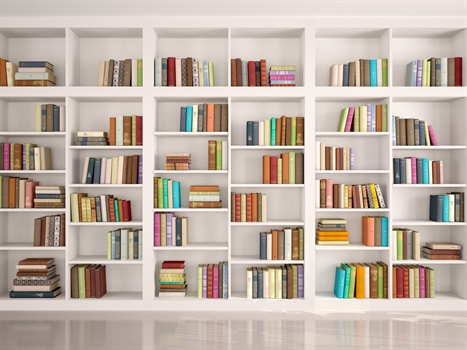Different people have different levels of tolerance for a visually complex living space. To some people, it is clutter, or mess; to others it is comforting and creatively inspiring.
But if disorganised household goods are making your life difficult and disorganised, it’s likely that it is harming your mental and physical health.
Disorganised possessions may increase your stress levels
If you can’t find things you need on a daily basis, this will make your life harder than it has to be. Knowing where your possessions are will reduce your stress levels and save you time and effort. Not only that, but clutter increases the risk of trips and falls around the home.
Clutter can make it harder to focus on a task
Disorganised possessions compete for your attention, which makes it harder to stay on-task. So housework takes longer, or you may not even have the energy to get started.
Too many possessions make housework harder
Housework becomes more difficult if you have a lot of things to dust and curate, and it takes longer too. Getting behind on household tasks can make it harder to manage allergies, and it can cause people to become isolated as they avoid social interaction because of shame about their living conditions.
A cluttered living environment is also linked with insomnia and obesity, according to WebMD.
Manage your possessions for an easier life
So there are plenty of good reasons to manage the possessions in your home. But if the task seems insurmountable, you may want to consider using a coach. A decluttering coach can help you make decisions about your possessions and give you pointers in managing the movement of possessions in and out of your home. A really good coach will give you the skills to go on managing your space for years to come.
But what will a decluttering coach do for me?
An important step in managing your possessions is to decide how you will get rid of things. A coach can help you to do this by signposting, and by helping you get round habits that are stopping you from moving things out of your life. APDO is the professional organisation for decluttering coaches, so use their directory to find the right person for you.
Some items should be disposed of as they have reached the end of their useful life. Others can be donated or gifted so that someone else can enjoy them. Planning where an object will go makes it easier to decide whether to keep it or get rid.
One approach is to have a one in, one out policy, meaning that if you get a new possession, you get rid of an old possession. If you feel you have too much stuff, you may want to use a one in, two (or three) out method until you’ve reached a comfortable level.
Another approach is to intentionally rotate your decorative items according to the season by displaying only a few selected things at a time. This allows you to use your creativity to get real pleasure out of your possessions.
Using self-storage to declutter
Using self-storage can relieve the pressure on the cupboards and spaces in your home. It will let you keep your things organised and easy to use.
It may also give you a safe space to make a decision about an item you are not sure about. It’s best to set yourself a time limit, though, to avoid the ‘out of sight, out of mind’ trap.
It’s easy to organise self-storage, and storage companies don’t usually check your credit. For ideas about reducing your self-storage costs, see this post. We would also recommend shopping around for your self-storage insurance by getting a quote from us.
A note on hoarding
If you are concerned about someone whose home has got beyond ‘visually complex’, then you may be wondering about hoarding disorder.
Hoarding disorder is a complicated condition that involves many factors, and it is best managed with professional support. We have a blogpost with some advice and resources which might be helpful if you are caring for someone who hoards.



